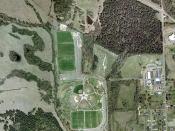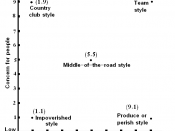In the last 35 years, simulations have been used with increasing frequency in the development of managerial talent. In various forms, simulations of managerial and organizational activities have been used to study administrative behavior (Hemphill, Griffiths, & Fredericksen, 1962), assess potential (Thornton & Byham, 1982), enhance managerial skills (McCall & Lombardo, 1978), diagnose training needs (Stumpf, 1988a, 1988b), foster team building among groups of managers (Kaplan, Lombardo, & Mazique, 1985), and evaluate the effectiveness of managerial training (Moses & Ritchie, 1975). In this article, we evaluate how simulations have contributed to the development of managerial talent by summarizing theory, research, and practice in three areas: research on managerial behavior, assessment of managerial abilities, and training managerial skills.
Definitions and BackgroundOur review of simulations covers what is formally called gaming simulations (Jones, 1972). A simulation is a model or representation of real-world events in which elements are depicted by symbols or numbers or in physical form.
In a simulation, some essential features of an activity are duplicated without portraying reality itself (Jones, 1972)-for example, something as simple as the interactions of a manager and subordinate dealing with a performance problem on the job, or something as complex as an island nation faced with multiple economic and political crises (Streufert, Pogash, & Piasecki, 1988). A game involves one or more players who are given background information to study, rules and conditions to follow, and roles to play. The essential feature of a game is the interactive process of players and the system (Jones, 1972).
When gaming simulations are used for assessing individuals, they are often called performance tests or exercises (Cronbach, 1970) or, when set in the context of an organization, business games. We have restricted this review of business games to simulations of social interactions, general management processes, and decision making...


